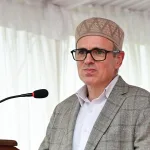Srinagar, Dec 12: With soiled hands and feet, women of all age groups mark their presence in the farm fields. Most of the women farmers start their day with the sunrise and continue to work after the sunset. Apart from their domestic chores, they work in the farms and contribute much to the agricultural sector.
Shameema Begum, a farmer at Kreeri in district Baramulla has been farming for almost 20 years now. During childhood, she used to go to fields with her mother and gradually learnt about farming.
From sowing to harvesting, rice is celebrated as a traditional food. In Kashmir, the consumption of rice is more which demands more production. Women who take up many agricultural activities like sowing, harvesting, winnowing and storing play an important role in the cultivation of rice and other crops.
While speaking with Rising Kashmir, Begum explained how she contributes to farming right from the sowing of a seed.
Farming starts with the selection of a good quality seed. Both men and women can do it but it’s usually done by women as they say, it is a time-consuming process and requires a lot of patience, she says.
The selected seeds are then sown into the farmland by men and then almost after one and a half month or two months, the seedlings are removed. This removal of seedlings is always done by women. After removing the seedlings, they are transplanted into the farmland.
She said, “Then we wait till October and once the grown foliage starts turning yellow, both men and women harvest it together and make the handful of stalks locally known as boudh which a reaper usually holds in hand. Then the process of threshing takes place.”
During sowing and harvesting of rice crops, women are either hired or relatives are invited to help. In Begum’s case it is the relatives who help.
This season of farming starts the day of Begum from leaving home for farming at 9:30 and returning before sunset.
Begum loves and enjoys farming a lot. Begum and almost all women celebrate farming so much that during harvesting, they sing different songs.
Mushtaq Ahmad, husband of Begum said he feels happy and proud that his wife handles everything smoothly.
Having interest in farming, Rimsha, 20-year-old daughter of Begum said that she would love to take farming forward.
“This is our job. Farmlands are a responsibility of both men and women. We have been doing this for generations now and we will continue with it. Farming is our identity and we are proud of it. I feel so happy that as a girl I am learning farming and will help my father in future”, said Rimsha.
Recalling her first time she went farming, she said, I helped in the leveling of land. “The leveling demands huge efforts but one has to do it as we have the responsibility of providing food to a huge number of people,” she said.
Another farmer, Noora Begum, who is 48 years old has been into farming for 20 years. She calls farming “heredity”. Farming is a sort of hobby for her children. She likes farming and spends almost 6 hours farming for a day.
“Women not only contribute to farming in terms of help from crop production to harvesting but also in terms of performing the household chores and other farm duties during the farming season. This seems less but takes a lot of hard work,” said Noora.
Another aspect of farming is the cultivation of mustard. After the harvesting of rice, mustard is sown on the same land.
Sabreena, a 20-year-old girl and her family have approximately 30 hectares of farmland in which they cultivate rice and mustard. To her, farming is very helpful as they get a lot of benefits from it. They have their own rice throughout the year. Her mother has learnt farming from her in-laws and she has been contributing since she has learnt.
“Farming is our only means of earning livelihood for us. It creates a lot of employment opportunities for women especially in rural areas where one finds few employment options. We work on our own land and eat what it produces,” she said.
A government employee and a mother of two children, Zaina Begum used to practice farming but now hires other women farmers during the season of farming. The reason she and her family hire people is because of the shortage of time and the need to concentrate on other important work. They pay each labour Rs 500 or Rs 600 a day, depending on the rates. For her there is no gender gap in farming as men and women both can do it and are doing it.
Aftaba Begum, another farmer does not only work in the fields during the season but also in the Apple orchids and kitchen gardens.
“During the exporting season, I carry the boxes in which apples are exported. These days I have to prepare food for the labourers in addition to other work. I have to prepare food for almost 8 to 10 people every day. We also get vegetables from our kitchen garden, almost every day. In winters we are usually consuming hokh suin – the dried vegetables which I had dried during the summer. I feel happy doing all this because I have been doing it for more than 20 years now”, she said.
64-year-old Rehti from Pampore has worked ever since she can remember in the Saffron fields. She believes that women have always had a central role in the farming and agriculture sector in Kashmir valley.
She has two daughters-in-law as well, but they don’t participate in the farming as much as she used to when she was young, probably because the family no longer relies principally on the income from their saffron lands. Saffron production has reduced in the past few decades and so has the work.
According to Rehti, since the Saffron cultivation or saffron farming altogether is relatively less laborious work, the intervention of the men has been less and women have particularly dominated the farming sector. Predominantly, in the saffron farming industry, the job of the men, as head of the families and as market savvy individuals, has been to get good money for the produce.
From sowing of seeds to cultivation and irrigation, Rehti Begum has always done her part in farming the family lands. Rehti remembers that even when she used to be pregnant, she would go to the saffron fields owned by the family and work there. She had almost come as near to give birth to one of her sons in their saffron field at Pampore.
Shakeela Shafi, 29, Resident of Charar-I-Sharief’s Darwan area in Budgam has been married to Mohammad Shafi Dar for the past one year and during this year she has learned to pick on agricultural practices that the family is involved in and contribute with her share of work. Her father was a carpet weaver and the family hardly had any lands, but when she married Mohammad Shafi, she came to know that women in this household worked in the fields shoulder to shoulder with men.
Currently, the men have been pruning the apple orchids so that the branches would not be weighed by the snow and break off due to the weight during the winter. It’s the job of the women and children to collect these clipped branches, assemble them in one place and then make charcoal out of them to be used in Kangaris during the winter.
Shakeela and her husband Mohammad Shafi live in a joint family and they have six women in the family, all of whom contribute to the labor in the fields besides shouldering the responsibility of the children and doing the household chores. It is also the duty of the women to milk the two cows and take care of the horse that they have. The dung of these animals is also carried by the women in big wicker baskets on top of their heads to the nearby family orchard. The dung is supposed to be good manure for the orchids and is put at the stem of the trees.
Sammah Masoodi, a BSC agriculture student says women are the face of farming. “It is not only in fields that a woman contributes but also outside fields; they have a huge contribution. In addition to the cultivation of rice and mustard, women also help in other agricultural practices,” said Sammah.
As per the Periodic Labour Force Survey 2019-2020, India has been witnessing a surge of women farmers in the sector of agriculture. More than three-quarters of women in ruler India are engaged in agriculture.
The government has launched many schemes to familiarize farmers with latest techniques in agriculture and allied sectors. Rashtriya Krishi Vikaas Yojna (RKVY), a scheme that ensures the holistic development of agriculture and allied sectors was implemented in J&K in 2018. Under the scheme, main areas covered are Crop development, Agriculture Mechanization, Natural Resource Management and Post-Harvest Management.
Another such scheme is the Sub mission on Agriculture Mechanization (SMAM) which focuses primarily on creating awareness by organizing trainings/demonstrations to increase reach of farm mechanization. Some other schemes include Mission on Integrated Dev. Horticulture (MIDH), National Mission on Sustainable Agriculture (NMSA), Soil Health Card (SHC) and Pardhan Mantri Krishi Sanchai Yojna(PMKSY).





